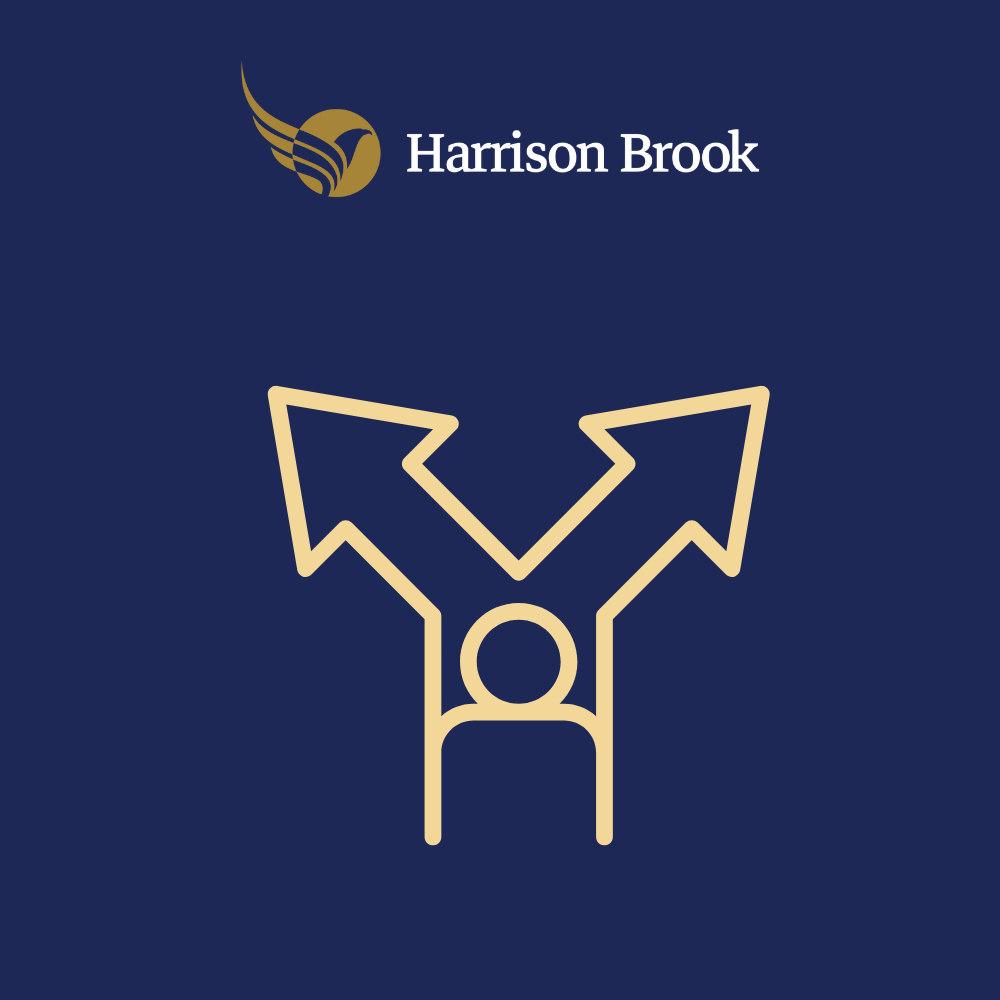
Choosing the right financial adviser can be daunting enough. Choosing between two expat financial advisers when both seem qualified adds another layer of uncertainty. Expatriates face unique financial challenges: cross-border pensions, multiple currencies, overseas property, and tax rules that change depending on where you live. The adviser you select will play a significant role in shaping your long-term security.
Expat financial advice is essential for navigating international tax regulations, effective tax planning, and avoiding double taxation. Understanding these complexities ensures you remain compliant and make the most of your financial opportunities abroad.
This guide takes you through the key steps to compare advisers, avoid common mistakes, and make an informed decision that aligns with your goals. When choosing between advisers, it’s important to consider how different rules in each country may affect your financial planning and compliance.
Why It Matters for Expats
International financial planning is not just about picking investments. It is about structuring your wealth so it works across jurisdictions, including careful consideration of tax implications and tax efficiency when moving assets between your home country and your country of residence. From SIPPs and QROPS to Assurance Vie, IRAs and offshore accounts, the right adviser ensures that your assets are managed efficiently and legally.
British expats, in particular, face unique challenges due to complex tax laws, making it essential to seek specialized advice to navigate these issues effectively.
A poor choice, however, could result in unnecessary costs, exposure to unsuitable products, or even compliance issues with tax authorities.
Step One: Verify Regulation and Credentials
The very first step is to confirm that both advisers are properly regulated to give advice to expats in your location. Conducting thorough due diligence is essential—verify the adviser’s credentials, check their regulatory status, and seek references to ensure they are reputable and appropriately authorised.
- Check licences and registration with recognised bodies
- Look for professional qualifications
- Confirm that they are authorised to advise cross-border clients
- Understand whether you are dealing with a restricted adviser, who can only recommend products from specific providers, or an independent adviser, who can offer advice from the whole market. This distinction is important for making informed decisions during your due diligence.
Advisers working without proper authorisation may expose you to risk. Harrison Brook operates under full European regulation, meaning clients can trust that they are protected.
Step Two: Compare Costs Transparently
A common question expats ask is “How much is too much for a financial adviser?” The answer depends, but hidden costs should never be part of the picture.
When comparing advisers:
- Request a full breakdown of fees
- Clarify whether they receive commissions on products
- Ask how ongoing charges are calculated
Transparent fee structures build trust and ensure you are not overpaying for the service you receive. Learn more about our transparent fees.
Step Three: Understand Their Investment Approach
Investment philosophies vary widely. Some advisers lean heavily on active management, while others prefer low-cost ETFs. Ask both advisers how they build portfolios and manage risk. It is crucial to receive regulated investment advice tailored to expats, as this ensures your unique cross-border needs are addressed and your financial goals are met efficiently.
Key questions include:
- Do they adjust for currency exposure?
- How do they approach sustainable investing?
- Do they recommend relevant expat-specific products such as offshore bonds or Assurance Vie?
- What types of investment products do they recommend for international clients, and how do they offer advice on selecting the most suitable options for your situation?
The best adviser will adapt strategies to your personal goals rather than pushing a one-size-fits-all model.
Step Four: Communication and Service
One of the most frequent queries in expat circles is “How many times a year should you meet with your financial adviser?”
The answer depends on your circumstances, but regular reviews are essential. At a minimum, annual check-ins are expected, with additional reviews during major life events such as moving country or retiring.
Ask:
- How accessible will the adviser be when you need guidance?
- Do they offer remote meetings across time zones?
- Will you have a dedicated adviser or a team?
For expats, flexibility and clear communication are as important as technical knowledge. It’s important to choose an adviser who can provide ongoing support as your circumstances and market conditions change. Having a trusted partner for your financial journey ensures you receive adaptive guidance and long-term support tailored to your evolving needs.
Step Five: Reviews and Reputation
When comparing advisers, client experiences provide valuable perspective. Independent review platforms such as Feefo give real insight into service quality and are a valuable tool in finding the best financial adviser for your needs.
Look for consistency in reviews. Are clients happy with ongoing support? Do advisers act promptly when challenges arise? Reviews can help you identify a good financial adviser by highlighting transparency, expertise, and client satisfaction. You can explore Harrison Brook reviews to see how we perform for clients worldwide.
Step Six: Breadth of Services
Some advisers focus narrowly on investments. Others, like Harrison Brook, provide holistic solutions for the entire expat journey. Working with an expat advisor or expat financial advisor who understands the full range of expat needs ensures you receive guidance tailored to your unique situation. When weighing up two advisers, ask whether they can help with:
- Pension transfers and consolidations
- International retirement planning
- Tax-efficient investments
- Succession and estate planning
- Conducting a comprehensive financial review to assess your current financial situation and identify opportunities for improvement
Choosing the right expat financial adviser ensures your needs are met now and in the future.
Local Presence and Licensing: Why It Matters
When seeking financial advice as an expat, choosing a financial adviser with a local presence and proper licensing is essential for your financial planning success. A qualified financial adviser who operates within your country of residence understands the local regulations, tax rules, and available financial products that can directly impact your investments and overall financial strategy. This local expertise is invaluable in the complex world of expat finance, where different countries have unique requirements and compliance standards.
A financial adviser licensed by a local authority is held to strict professional standards, offering you greater protection and peace of mind. They can provide financial advice that is tailored to your specific situation, ensuring your financial planning aligns with both your current location and your long-term goals. By working with an adviser who is both locally present and properly licensed, you can confidently navigate the challenges of cross-border finance and make informed decisions about your money.
Independent vs. Tied Advisers: What’s the Difference?
Understanding the distinction between independent and tied financial advisers is crucial when setting your financial goals as an expat. Independent financial advisers are able to offer transparent advice on a wide range of financial products from multiple providers, ensuring that the recommendations you receive are truly in your best interests. This broad access allows them to tailor their advice to your unique financial situation, helping you achieve your objectives with the most suitable solutions available.
In contrast, tied advisers are restricted to offering products from a single company or a limited selection of providers. This can limit your options and may not always align with your financial needs or goals. For expats, working with an independent financial adviser means you benefit from unbiased advice and a comprehensive view of the market, giving you the confidence that your adviser is focused on your financial wellbeing rather than promoting specific products. Always ask your adviser about their status to ensure you receive the best possible guidance for your financial future.
Is It a Good Idea to Have Two Advisers?
Some expats wonder if they should keep two advisers to diversify opinion. In reality, this can cause duplication, confusion, and conflicting strategies, especially when managing finances across two countries. For those with ties to both US and UK, it may be beneficial to seek advisers with expertise in both countries, as coordinated advice is crucial for effective cross-border financial planning. Living overseas often requires a holistic approach to managing income and financial planning, ensuring that income streams, tax obligations, and investment strategies are aligned across jurisdictions. Unless your financial situation is unusually complex, it is usually best to have one trusted adviser who understands the whole picture.
Red Flags to Watch For
When comparing two advisers, these warning signs should tilt your decision:
- Promises of high guaranteed returns
- Lack of regulatory clarity
- Commission-driven product recommendations
- Poor communication or avoidance of direct questions
- Reluctance to disclose fees
- Recommendations for unnecessary or high-fee bank account arrangements
An adviser should always act transparently and in your best interests.
Complaints and Redress: What If Things Go Wrong?
Even with the most diligent research, there may be times when you are dissatisfied with the advice or service provided by your financial adviser. That’s why it’s important to understand the complaints and redress process before you commit. Reputable financial advisers are regulated by a local authority or regulatory body and are required to have a clear, formal complaints procedure in place.
If you have concerns about the advice you’ve received, you should first raise the issue directly with your adviser or their firm. A qualified financial adviser will take your feedback seriously and work to resolve any problems promptly. If the issue cannot be resolved internally, you have the right to escalate your complaint to an independent regulatory body or ombudsman, who can review your case and provide an impartial resolution. Knowing that your adviser is transparent about their complaints process and accountable to a regulatory body gives you added confidence and helps protect your financial interests.
Tips for Working with an Expat Adviser
Building a successful relationship with your expat financial adviser is key to securing your financial future while living abroad. Here are some practical tips to help you get the most from your adviser:
- Verify qualifications and experience: Ensure your expat financial adviser is fully qualified, experienced, and licensed to provide financial advice in your country of residence.
- Clarify your financial goals and risk tolerance: Be open about your objectives and how much risk you’re comfortable taking. This helps your adviser tailor their advice and investment strategies to your needs.
- Understand the fee structure: Ask your adviser to explain how they are compensated, so you know exactly what you’re paying for and can avoid surprises.
- Maintain open communication: Establish regular reviews and keep the lines of communication open. This ensures your investment portfolio stays aligned with your changing circumstances and financial goals.
By following these steps, you can develop a trusted partnership with your expat adviser, receive ongoing support, and set yourself up for long-term financial success. Remember, seeking financial advice from a qualified expat financial adviser is the first step towards navigating the complexities of living abroad and achieving your future goals.
FAQs: How Do I Choose Between Two Expat Financial Advisers?
How do I tell if a financial adviser is good?
Check their regulation, credentials, independent reviews, and whether they explain matters clearly without jargon.
What are the “3 C’s” of selecting a financial adviser?
Credentials, communication and costs. These three factors give you a strong indication of quality.
When should you stop using a financial adviser?
If trust breaks down, if fees outweigh the value delivered, or if you feel pressured into unsuitable products.
Is it wise to have two advisers?
Usually not. It may cause confusion and additional costs. One holistic adviser is normally best.
How many times a year should you meet your adviser?
At least once annually, but ideally more often when circumstances change.
Should couples share the same adviser?
Yes. A joint adviser ensures both partners’ finances are aligned towards shared goals.
What are the disadvantages of having a financial adviser?
The primary disadvantage is cost, but a good adviser should add far more value than the fees charged.
What are red flags to look out for?
Guaranteed returns, hidden fees, vague answers, lack of regulation and commission-driven recommendations.
Can you move from one adviser to another?
Yes, and sometimes it is the best decision if service or trust falls short.
At what point is it worth paying for advice?
When your assets, pensions or tax exposure are complex enough that DIY management risks costly mistakes.
Making the Final Decision
After comparing regulation, fees, service, reviews and breadth of advice, the final factor is trust. Ask yourself:
- Do I feel comfortable sharing my financial future with this person?
- Do I believe they understand my expat journey?
- Do I trust them to adapt as my circumstances change?
If the answer is yes, you have found the right adviser.
Next Steps
At Harrison Brook, we specialise in helping expats worldwide manage their pensions, investments and retirement plans with full transparency and global reach. If you are comparing advisers, why not see how we measure up?
👉 Book your free consultation today and discover why so many expats choose Harrison Brook.



